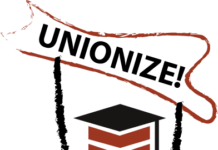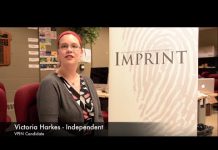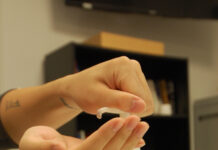
The WUSA Fall 2019 General Meeting, chaired by Michael Beauchemin, President of WUSA, was held on Oct. 22.
WUSA general meetings are held every Fall and Winter to give all UW undergraduate students a chance to voice their opinions on campus-wide issues.
Due to a low initial turnout at the event, Beauchemin and other representatives delayed the meeting by an hour from 4:30 pm in an attempt to persuade students to join.
According to bylaws, at least 200 people must attend an event either in person or by proxy in order for the event to host a public vote.
The general meeting eventually started at 5:30 pm.
The meeting opened with items that were required to be disclosed as per bylaws.
Such bylaw-required items consisted of opening remarks, the approval of the agenda, and the approval of the minutes from the Winter 2019 General Meeting.
The meeting was then divided by member-submitted proposals, in which students voiced their own issues about UW, as well as governance and administrative items that covered financial and legal amendments to WUSA’s operations.
Students were given the opportunity to elaborate on each proposal in a discussion and vote on which proposal to accept.
Seneca Velling, WUSA VP Operations and Finance, led the fees and finances section of the governance and administrative items to be addressed in the meeting.
In addition to the approval of accounting firm PriceWaterHouseCoopers, LLP as the official auditors between Fall 2020 and Fall 2022 terms, Velling proposed a new capital improvement plan fee.
The fee aimed at improving the quality of capital assets throughout the campus, which included wheelchair accessibility features, among others.
“If there’s an accessibility effort, it needs to be made. We need to honour this space to support students, and that’s really tough to do if we don’t have funds available for it,” Velling said. “[W]e’re going to be designing for lounge space repairs… It would be designed for things that further enhance capital maintenance of a building — for example, SLC — or capital improvements for student spaces.”
Velling also proposed a notion to increase transparency on the Student Life Centre Fee.
“The net change on you as a student is zero; no fee increase, no fee decrease, just calibration,” Velling said. “But the difference is, you then get control over those fees. This meeting, the Students’ Council, the Board of Directors, and your elected representatives and decision makers get to make decisions on the use of your money. …That means there’s more accountability for how your fees are adjusted to you directly and you get to be part of the conversation afterwards.”
In addition, several amendments to the bylaws were proposed. They included changes to Articles 4, 5, 9, and 11, with each section focusing on dues, general meetings, officers, and elections and referenda, respectively.
The member-submitted proposals were diverse and consisted of 15 proposals that included issues such as: greater recognition for Remembrance Day, a new FedBus route to Ottawa, and increased bicycle security measures.
One proposal by member Nasir Nurbhai to improve UW’s sustainability procedures led to a discussion by Matt Thijssen, UW Sustainability Manager.
Thijssen explained several projects UW already implemented, as well as goals the institution hoped to achieve in the near future, all of which could be found in the Environment Sustainability Strategy report on the Sustainability website.
“We’re extremely transparent compared to campuses when it comes to publishing information on our sustainability efforts,” Thijssen said. “We carry trust in anything from how much waste we produce, to how much we recycle as a campus, to what our carbon footprint is in terms of emissions to generate on-campus operations, from commuting, to waste, to water usage and a whole bunch of other sources.”
For information on the General Meeting, and how to get involved, visit the WUSA website at https://wusa.ca/.































